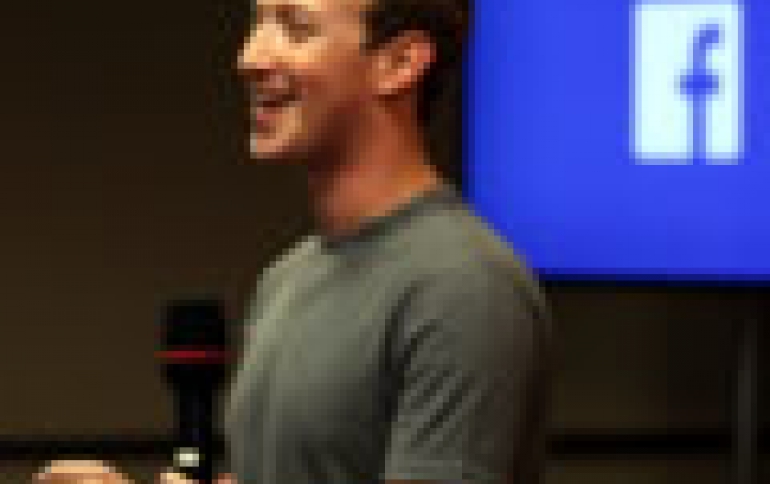
Mark Zuckerberg Wants to "Fix" Facebook
Facebook Chief Executive Officer Mark Zuckerberg said his personal challenge is to address criticisms about his platform's role in society.
In a post on Facebook, Zuckerberg said that his goal for 2018 is to protect the community from abuse and hate, defend against interference by nation states, and make sure that time spent on Facebook is time "well spent."
In December, two former executives, Sean Parker and Chamath Palihapitiya, suggested that Facebook use might be harmful.
"We won't prevent all mistakes or abuse, but we currently make too many errors enforcing our policies and preventing misuse of our tools," he said.
He vowed to take a comprehensive look at Facebook's role in society, recruiting experts and using his personal time to closely study issues that he said "touch on questions of history, civics, political philosophy, media, government, and of course technology."
For example, one of the most interesting questions in technology right now is about centralization vs decentralization.
"A lot of us got into technology because we believe it can be a decentralizing force that puts more power in people's hands. Back in the 1990s and 2000s, most people believed technology would be a decentralizing force," Zuckerberg said. " But today, many people have lost faith in that promise. With the rise of a small number of big tech companies - and governments using technology to watch their citizens - many people now believe technology only centralizes power rather than decentralizes it."
Facebook's founder also gave cryptocurrency enthusiasts a little optimism for the new year.
"There are important counter-trends to this -- encryption and cryptocurrency -- that take power from centralized systems and put it back into people's hands," Zuckerberg wrote. "But they come with the risk of being harder to control. I'm interested to go deeper and study the positive and negative aspects of these technologies, and how best to use them in our services."
What that may mean for the digital currency world remains to be seen.
After initially dismissing concerns about the influence of so-called fake news on Facebook, especially during the 2016 U.S. presidential campaign, Zuckerberg released a 6,000-word "community letter" in February, explaining how Facebook would attempt to prevent harmful uses of its platform and focus on building relationships between people. This summer, the company organized its first Communities Summit, during which Zuckerberg unveiled improved functionality designed to make Facebook more useful to organizers of offline local groups, such as churches. And during the company's earnings call in November, Zuckerberg warned investors that Facebook's investments in security to prevent abusive of its platform would hurt profitability.





















